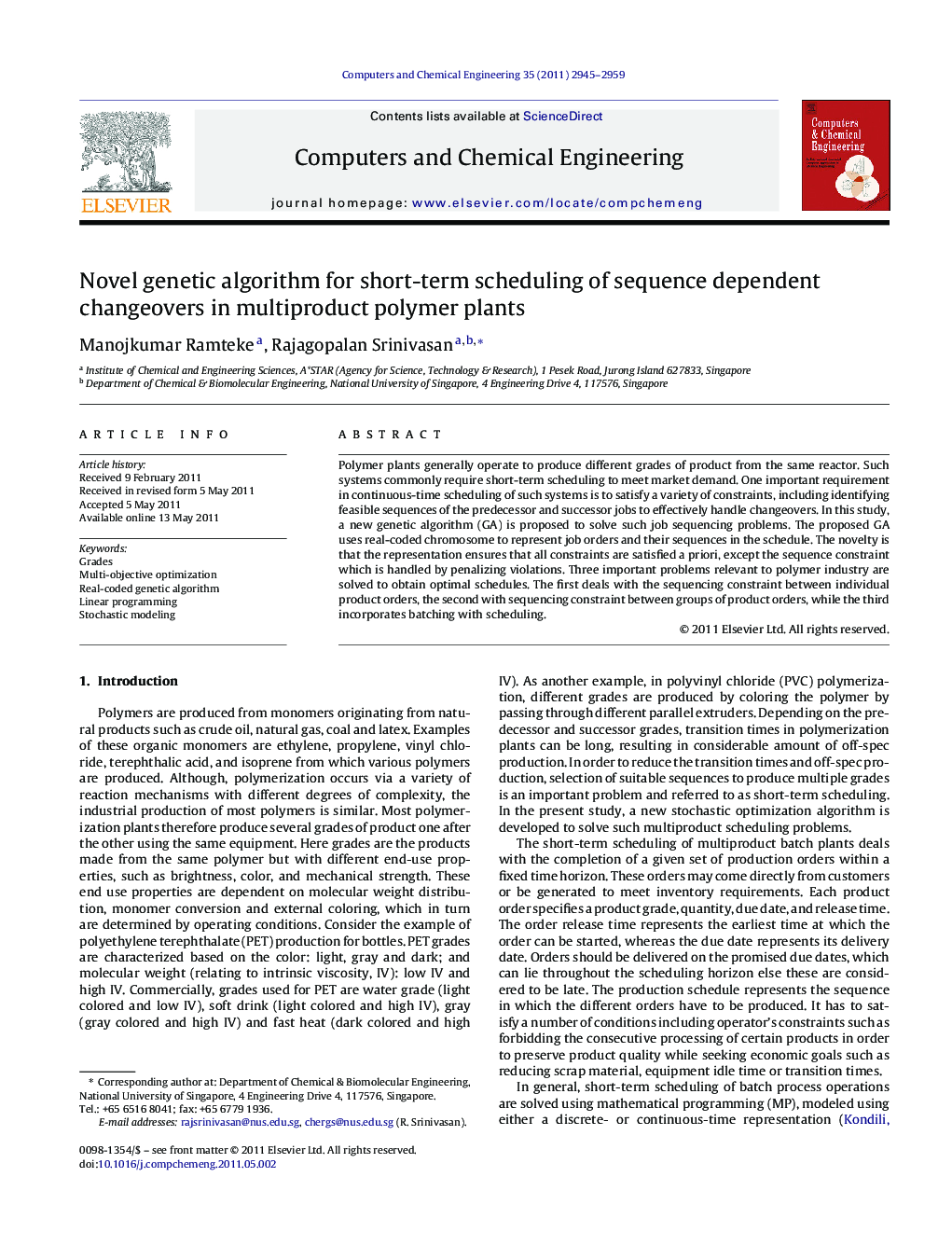| Article ID | Journal | Published Year | Pages | File Type |
|---|---|---|---|---|
| 172981 | Computers & Chemical Engineering | 2011 | 15 Pages |
Polymer plants generally operate to produce different grades of product from the same reactor. Such systems commonly require short-term scheduling to meet market demand. One important requirement in continuous-time scheduling of such systems is to satisfy a variety of constraints, including identifying feasible sequences of the predecessor and successor jobs to effectively handle changeovers. In this study, a new genetic algorithm (GA) is proposed to solve such job sequencing problems. The proposed GA uses real-coded chromosome to represent job orders and their sequences in the schedule. The novelty is that the representation ensures that all constraints are satisfied a priori, except the sequence constraint which is handled by penalizing violations. Three important problems relevant to polymer industry are solved to obtain optimal schedules. The first deals with the sequencing constraint between individual product orders, the second with sequencing constraint between groups of product orders, while the third incorporates batching with scheduling.
► Sequence dependent changeovers are a common feature in polymer plant scheduling. ► A new genetic algorithm has been designed for optimal scheduling. ► The chromosome represents job orders and their sequences thus ensuring that most scheduling constraints are satisfied a priori. ► The proposed GA has been applied to 3 different scheduling problems and compares favorably with results reported in literature.
